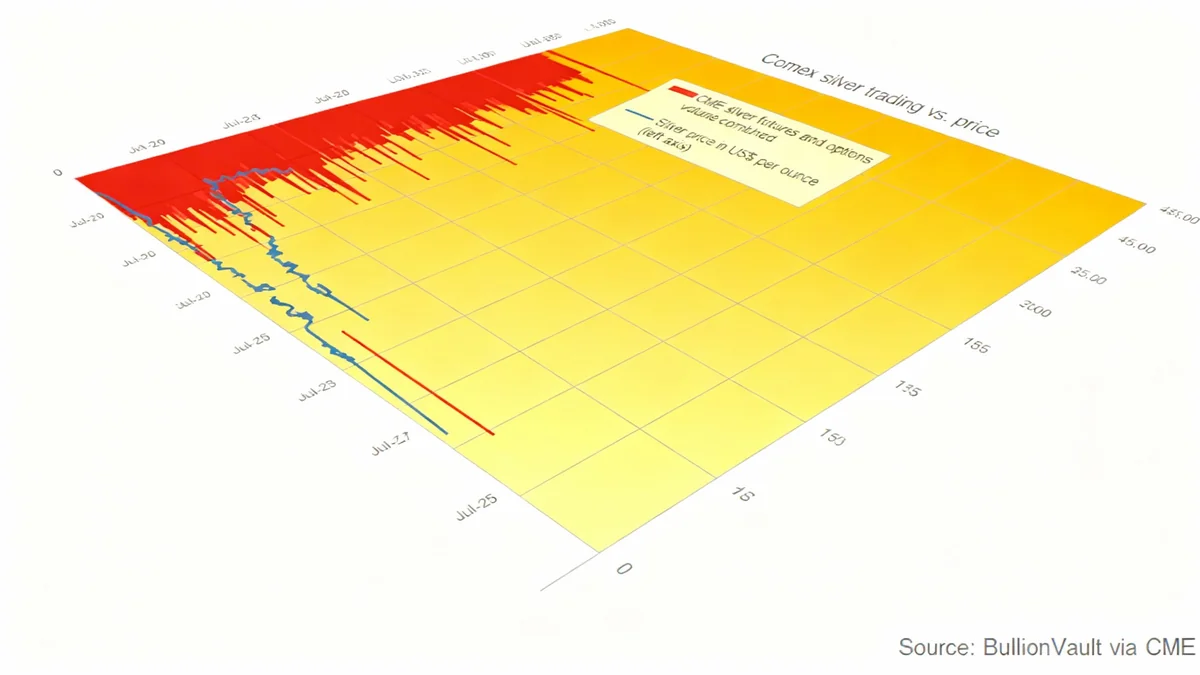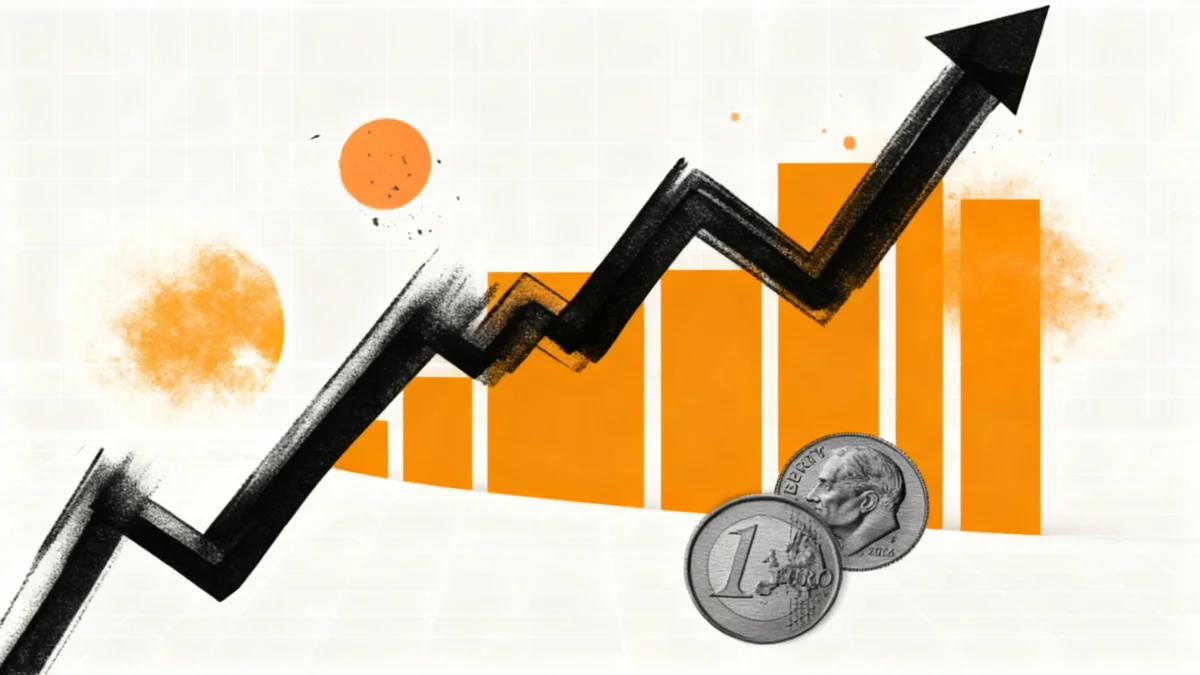The Schwab U.S. Dividend Equity ETF (SCHD), a popular choice for income-focused investors, has shown mixed performance recently. The fund has decreased by 1.33% over the last five trading days but maintains a year-to-date gain of 2.33%. Analysts currently hold a consensus rating of "Moderate Buy" on the ETF, based on the outlook for its underlying holdings.
This analysis delves into the fund's recent performance, the specific companies driving its potential growth, and the stocks that analysts see as potential risks. Understanding these components is crucial for investors considering SCHD as part of their portfolio strategy.
Key Takeaways
- Recent Performance: SCHD is down 1.33% in the past week but remains up 2.33% for the year.
- Analyst Consensus: The ETF holds a "Moderate Buy" rating based on a weighted average of analyst ratings for its individual stock holdings.
- Price Target Upside: The average analyst price target for the ETF's holdings suggests a potential upside of 13.51%.
- Key Holdings: Stocks like FMC Corp. (FMC) and Schlumberger (SLB) show high upside potential, while others like Murphy Oil (MUR) and Altria (MO) present potential downsides according to analyst targets.
- Market Expectation: With a Smart Score of 7, SCHD is expected to perform in line with the broader market.
Understanding the Schwab U.S. Dividend Equity ETF (SCHD)
The Schwab U.S. Dividend Equity ETF is one of the largest and most popular exchange-traded funds focused on dividends. Its primary goal is to track the performance of the Dow Jones U.S. Dividend 100™ Index. This index is designed to measure the performance of high-dividend-yielding stocks in the U.S. that have a record of consistently paying dividends.
To be included in the index, companies are screened for several fundamental criteria. These include cash flow to total debt, return on equity, dividend yield, and the five-year rate of dividend growth. This methodology aims to identify financially strong companies that are not only paying dividends now but have the capacity to continue doing so in the future.
What Is an ETF?
An Exchange-Traded Fund (ETF) is a type of investment fund that is traded on stock exchanges, much like individual stocks. An ETF holds assets such as stocks, commodities, or bonds and generally operates with an arbitrage mechanism designed to keep its trading price close to its net asset value. SCHD, for example, holds a basket of over 100 different dividend-paying stocks.
Investors are often drawn to SCHD for its low expense ratio and its focus on quality and sustainability in its dividend-sourcing strategy. It provides diversified exposure to a portfolio of U.S. dividend stocks in a single, easy-to-trade security, making it a common component in long-term investment and retirement portfolios.
Current Performance and Market Position
While long-term performance is a key metric for many investors, SCHD's recent activity provides a snapshot of its current market standing. The fund's 1.33% decline over the past five days reflects short-term market volatility that has impacted various sectors of the economy.
However, its year-to-date gain of 2.33% indicates resilience and a positive trajectory over a longer period in the current year. This performance is particularly noteworthy in the context of fluctuating interest rate expectations and shifting economic forecasts, which can significantly impact dividend-paying stocks.
Smart Score Rating: 7
According to data from TipRanks, the SCHD ETF has a "Smart Score" of seven out of ten. This score is a quantitative measure derived from eight key market factors, including analyst ratings, corporate insider transactions, and financial blogger sentiment. A score of 7 suggests that the ETF is likely to perform in line with the overall market averages.
This neutral-to-positive outlook suggests that while the ETF may not be positioned for explosive growth, it is expected to be a stable performer, aligning with the goals of many dividend-focused investors who prioritize steady income and capital preservation over high-risk, high-reward strategies.
Analyst Consensus Points to Moderate Buy
The overall analyst consensus for SCHD is a "Moderate Buy." This rating is not a direct evaluation of the ETF itself but rather a weighted average of the analyst ratings for the 100-plus individual stocks held within the fund. This approach provides a comprehensive view of how Wall Street analysts perceive the collective health and prospects of SCHD's portfolio.
Furthermore, the average price target for these underlying holdings is $30.65. While this figure should not be interpreted as a price target for SCHD itself (which trades at a different price point), it implies a potential average upside of 13.51% for the stocks that make up the fund. This suggests that analysts see room for growth in the value of the companies within the ETF.
"The consensus rating is a powerful tool as it aggregates the opinions of numerous financial analysts, providing a broader perspective than a single rating could offer. For SCHD, the 'Moderate Buy' indicates a generally positive sentiment on the quality of its holdings."
This data indicates that, on the whole, the financial community sees value in the companies that SCHD has selected based on its rules-based index strategy. The potential for capital appreciation, combined with the dividend income, forms the core of SCHD's total return proposition.
Holdings with Significant Upside Potential
A deeper look into SCHD's portfolio reveals several companies that analysts believe have significant growth potential. These are the holdings where the current stock price is furthest below the average analyst price target.
- FMC Corp. (FMC): A global agricultural sciences company, FMC provides crop protection, plant health, and professional pest and turf management products. Analysts may see upside due to growing global food demand and innovation in agricultural technology.
- Schlumberger (SLB): As a leading oilfield services company, SLB's outlook is often tied to global energy demand and oil prices. Potential upside could be driven by increased exploration and production activities worldwide.
- AMERISAFE, Inc. (AMSF): This company is a specialty provider of workers' compensation insurance, focusing on high-hazard industries. Analysts might see potential in its specialized market niche and disciplined underwriting.
- Kforce (KFRC): A professional staffing services and solutions firm, Kforce specializes in the technology and finance sectors. Growth could be fueled by a tight labor market and continued demand for specialized talent.
- Inter Parfums (IPAR): IPAR manufactures and distributes prestige perfumes and cosmetics. Its potential upside may be linked to strong brand partnerships and growth in the luxury goods market.
Holdings Facing Potential Headwinds
On the other side of the spectrum, analysts have identified some holdings within SCHD that may face challenges. For these companies, the average analyst price target suggests limited upside or potential downside from current levels.
- Murphy Oil (MUR): An independent oil and natural gas exploration and production company. Potential downside risk could be associated with volatility in energy prices or specific operational challenges.
- Altria (MO): A major producer of tobacco and smoke-free products. Headwinds include declining smoking rates, stringent government regulations, and the competitive landscape for alternative nicotine products.
- Carter’s (CRI): A leading retailer of children's apparel. The company may face challenges from consumer spending shifts, inflation impacting discretionary purchases, and intense retail competition.
- Comerica (CMA): A regional bank holding company. Banks can be sensitive to interest rate changes and the overall economic climate, with potential risks tied to credit quality and net interest margins.
- American Financial Group (AFG): A holding company engaged primarily in property and casualty insurance. The insurance industry faces risks from catastrophic events, inflation affecting claim costs, and investment market volatility.
It is important for investors to remember that SCHD's diversified nature, with over 100 holdings, means that the performance of a few individual stocks does not solely dictate the fund's overall trajectory. The fund is designed to mitigate single-stock risk through its broad portfolio.





